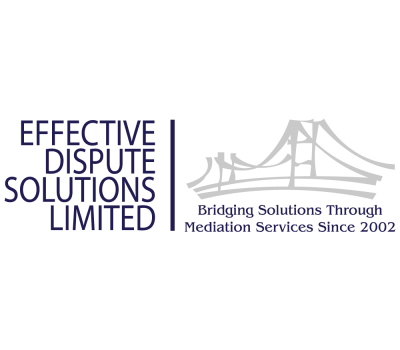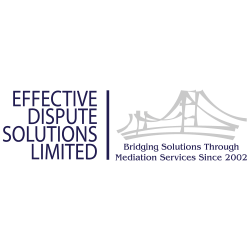Are Mediations Confidential?
- November 25, 2016
Are mediations confidential, the absolute answer to this is yes!
Confidentiality is one of the cornerstone principles of mediation, and arguably one of the most important, that is why the mediation process is so attractive to parties, as they know that the process is confidential and safeguards them, compared to litigation which is not confidential.
Regardless of what type of mediation you may enter into, whether it be commercial, workplace, employment, family or community mediation all types of mediation are governed by the clause of confidentiality.
Are Mediations Confidential – 2 fold
Mediation confidentiality plays two roles however, firstly the whole process is confidential and those in attendance cannot without the permission of the other parties divulge anything that is said or done at the mediation, in fact all parties in attendance need to sign an agreement to mediate which has a whole section dedicated to confidentiality, equally without prejudice, which is another principle of mediation needs to be discussed.
Are Mediations Confidential – Without Prejudice
Without prejudice means regardless of what is said, done or even agreed in principle at a mediation, without any agreement being executed, i.e. signed by both parties, none of this can be referred to should the matter not settle and proceed to a more formal process such as litigation.
However cannot a Court or Judge compel the parties to discuss what they may have spoken about at a mediation? No! Any previous discussions, draft, potential agreements are inadmissible.
Equally unless subpoenaed a mediator cannot be called to act as a witness at any court hearing either, although this has been debated in recent times, with the landmark case of Farm Assist Limited (in liquidation) Claimant – and – The Secretary of State for the Environment, Food and Rural Affairs (No.2), whereby a mediator was called to act as a witness, even though the mediator challenged the witness summons, the application to set aside the witness summons was dismissed.
This however was a one off; generally mediators are immune from giving testimony.
Rewinding back slightly to the actual mediation, the second level of confidentiality is where the mediator must observe, private meetings between the parties, most mediations will have a series of joint as well as private meetings, it is in these private meetings where the mediator needs to be extra careful if they are told something by party A and told not to repeat it to party B, then they must observe that information and treat as confidential, only with the express permission of the party who departed with such information, may it be passed onto the other party.
Are Mediations Confidential – Can a mediator break confidentiality?
When can a mediator break confidentiality? Generally they cannot, however exceptions would be, where a crime has taken place, about to take place, for example where the Proceeds of Crime Act comes into play, or where another is in danger of being harmed, other than this a mediator must observe confidentiality at all times, to include discussing or writing about any cases that they have mediated, whereby they should change certain details whereby none of the parties are identifiable.
Mediation Services Video
Our Expert Mediators, Click On
Their Name To View Their Whole CV
2002 CEDR, Academy of Experts, ADR Group Accredited Mediator. 21+years of experience. 1000+ mediation’s, 90% success rate. Mediated every type of commercial, workplace, boundary & family dispute. CIArb mediation assessor & trainer since 2007. ADR Group, Head of Mediation Training 2018 – 2020. English & Punjabi speaker.
Harvinder Singh BhurjiLLB (Hons), QDR(M), MCIArb, MCMI, CTLLSDirector, International Commercial & Workplace Mediator & Trainer

1998 CEDR & ADR Group Accredited Mediator. 25 years experience, CIArb & RICS mediation trainer & assessor. Coach since 1987. Specialisms racial discrimination, unfair & constructive dismissal, bullying. Property, family businesses, construction, professional negligence. Director, partnerships, business, joint venture, debt, employment.
Jane WalmsleyBA, LLB, LLM, MCIArb, UKCP, MBACPPsychotherapist, Coach, Commercial &
Workplace Mediator, Barrister (non-practicing)

2004 ADR Group Accredited Mediator. 19 years mediation experience. CIArb Commercial Mediation Assessor. Solicitor & Consultant at Freeths 45+ years. Specialisms, dispute resolution, professional negligence, clinical negligence, product liability, personal injury, defamation & sports law.
Paul BalenLLB (Hons), Solicitor & Consultant at Freeths LLP, Director of Trust Mediation, Commercial Mediator

Dentist, CIArb & ADR Group Accredited Mediator, 18 years mediation experience, has been involved in over 100 civil & commercial mediations.
Dr. Michael ButterworthBDS, DGDP(UK), MFDS (RCS Eng), LLM, MCIArbDentist & Commercial & Family Mediator

2005 ADR Chambers Accredited Mediator. 18 years mediation experience. Chartered Accountant & Insurance Practitioner. Expert witness. Specialisms, insurance, liquidations, professional negligence, construction & boundaries.
David S BlackBSc (Hons) CA FCII FCILA ACIArb MEWICommercial Mediator & Accountant

2017 CEDR Accredited, 6 years mediation experience. Specialisms, commercial, company, contract, property, probate, IP & professional negligence.
Tim BennettPartner & Head of Dispute Resolutionat Bray & Bray Solicitors, 2007 - 2020.
CEDR Accredited Commercial Mediator

2005 CEDR Accredited Mediator, 18 years mediation experience. Proprietor of Beaumonde Law Practice, Solicitor & employment law specialist. Specialisms company, unfair dismissal, discrimination & compromise agreements. English & Punjabi speaker.
Sundeep Singh BhatiaEmployment Solicitor & Commercial Mediator 
2011 CIArb Accredited Mediator. 12 Years Mediation Experience. 400+ mediations.
CIArb Mediation Assessor. Specialisms, construction, property, commercial, boundaries, probate & professional negligence.
Bruce BourneMRICS, MCIArb, Chartered Surveyor, Commercial Mediator 
2009 RICS Accredited Mediator. 14 years mediation experience. Fellow of the Royal Institution of Chartered Surveyors.
Expert Witness, Determination. Specialisms construction, dilapidations, property & boundary.
Richard CavadinoChartered Quantity Surveyor & Commercial Mediator 
2010 CIArb Accredited Mediator. 13 years mediation experience. Specialisms, construction, engineering, contract, employment, partnership, shareholder & professional negligence disputes.
Martin CollingwoodSolicitor, Commercial Mediator,Arbitrator, Adjudicator, Med – Arb specialist

2004 CEDR & ADR Group Accredited Mediator. 19 years mediation experience. Barrister,
conducted 110+ mediations. Specialisms, boundary, landlord & tenant, employment, contractual disputes.
David DalyBarrister & Commercial Mediator 
1996 CIArb Accredited mediator. 27 years mediation experience. Qualified as a solicitor in 1962. Specialisms. all forms of building and civil engineering projects in the UK & overseas.
Roderick O'DriscollFCIArb, MBEng, Chartered Arbitrator, Accredited Mediator,Notary Public, Qualified Solicitor of the Supreme Court

1998 Academy of Experts Accredited Mediator. Qualified Dispute Resolver. 25 years mediation experience. CIArb commercial mediation course tutor & assessor. Issued well over 400 awards, decisions in civil & commercial disputes. Specialisms all commercial matters.
Ike EhiribeLLB (Hons) lagos, B.L, FCIArb, FSIArb, QDR, Barrister, Chartered Arbitrator, Adjudicator, Visiting Professor & Commercial Mediator

2003 CEDR Accredited Mediator. 20 years mediation experience. Manchester University lecturer, visiting lecturer & professor at several overseas universities. CIArb commercial mediation course tutor & assessor. Specialisms construction & engineering.
Dr. Peter FennBSc PhD FRICS FCIArb, Academic, Quantity Surveyor,Adjudicator, Arbitrator & Commercial Mediator

1996 CEDR Accredited Mediator. 27 years mediation experience. CIArb commercial mediation course tutor & assessor. Specialisms, construction, contracts, corporate sale, landlord & tenant, employment, personal injury & professional negligence.
Grant GoodladBarrister & Commercial Mediator 
2002 CEDR Accredited Mediator. 21 years mediation experience. Consensio workplace mediation course trainer. Specialisms, business, charities, contract, education, workplace, landlord & tenant, media, partnership, public sector, wills & probate.
Carolyn GrahamCommercial & Workplace Mediator 
ADR Group Accredited Mediator. 17 years mediation experience. 19 years as a civil litigator. Specialisms, personal injury, clinical & professional negligence, partnership, employment, landlord & tenant, commercial contract, boundary & probate disputes.
Phil HeskethSolicitor till 2008, Commercial Mediator 
1997 ADR Group Accredited Mediator. 26 years mediation experience. Head of insurance litigation department, specialising in personal injury & insurance litigation. Specialisms, personal injury, professional negligence, partnership, landlord & tenant.
Paul Hughes Solicitor & Commercial Mediator 
2003 ADR Chambers Accredited Mediator. 20 years mediation experience. Specialisms, contract, debt recovery, consumer, property, repossessions, & personal injury.
Maz Adam IqbalLLB (Hons), PGDip, MCIArb, CeMap,Barrister, Mortgage Advisor & Commercial Mediator

2007 ADR Group Accredited Mediator.16 years mediation experience. Specialisms, property, insurance, construction, professional negligence, boundaries, landlord & tenant & engineering.
Russell JonesSolicitor & Commercial Mediator 
2008 Accredited Mediator. 15 years mediation experience. Specialisms, commercial, company, contract, employment, insolvency & personal injury law.
Joe Al KhayatBarrister & Commercial Mediator 
2003 CEDR Accredited Mediator. 2004 ADR Group Accredited Mediator. 20 years mediation experience. Various directorships. Specialisms, building, construction, family business, partnership, commercial contracts, landlord & tenant & professional negligence.
Robin LeaBSc Mech Engineering, Commercial Mediator 
1999 CEDR Accredited Mediator. 90% success rate. 24 years mediation experience. Specialisms, contract, employment, boundary, building & construction.
Edward LegardBarrister, Employment Judge & Commercial Mediator 
2007 ADR Group Accredited Mediator. 16 years mediation experience. Specialisms, construction, property, commercial landlord & tenant, boundary, shared ownership, occupation & Inheritance Act disputes.
Michael McCourtLLB MSc FCIArb, Deputy DistrictJudge, Commercial & Family Mediator

2001 ADR Group Accredited Mediator. 22 years mediation experience. Specialisms, building, construction, civil engineering, professional negligence, boundary & contracts.
Paul NewmanBarrister, Adjudicator & Commercial Mediator 
2002 ADR Group Accredited Mediator. 21 years mediation experience. Qualified as a Solicitor in 1982. Family Mediator (MIAMs) trained also. Specialisms, family, probate, contract, debt recovery, & workplace disputes.
Frances PlaceCommercial & Family Mediator 
1997 ADR Group Accredited Mediator. 26 years mediation experience. Solicitor since 1991, for many years having obtained a Ist Class Honours Law Degree from Liverpool University. Specialisms, commercial, company, contract, employment, insolvency & personal injury law.
John RocheLLB (Hons) Solcitor & Commercial Mediator 
2007 ADR Group Accredited Mediator. 16 years mediation experience. Family & workplace mediation trained. Specialisms, probate, landlord / tenant, boundary, partnership, building, contract, insurance, professional negligence, family & workplace.
Julian RendallLLM, MCIArb, FMCA, MIAM's PPCSupervisor, Commercial, Workplace & Family Mediator

2002 CEDR Accredited Mediator. 21 years mediation experience. Specialisms, business, company, contract, debt recovery, director & partnerships.
Jeffrey C RosenthalBSc (Econ) FCCA FCIArb MAE, Accountant,Arbitrator, Expert Witness & Commercial Mediator

2008 ADR Group Accredited Mediator. 15 years mediation experience. Was a solicitor for 9 years, before being called to the Bar. Specialisms, litigation, trusts of land, property, landlord tenant & unlawful eviction.
Tom RussellBarrister & Commercial Mediator 
2008 ADR Chambers Accredited Mediator. 15 years mediation experience. Director at Davisons Solicitors & Head of the Dispute Resolution Team. Specialisms, construction, probate, family, employment, contract & professional negligence.
Umran SadiqSolicitor & Commercial Mediator 
2007 CIArb Accredited Mediator. 16 years mediation experience. Senior Counsel, Arbitrator, Conciliator, Med Arb & Expert Determination specialist. Specialisms, building, construction, civil engineering, rail, marine, energy, site remediation, professional negligence, contract & partnerships.
Ken SalmonMCIArb, Consultant Solicitor & Commercial Mediator 
2005 CEDR Accredited Mediator. 18 years mediation experience. Family Mediator also.
Vice President of the Law Society of England & Wales. English, Punjabi & Urdu speaker. Specialisms, property, boundary, directors, probate & contract.
Lubna ShujaSolicitor, Commercial & Family Mediator 
2003 ADR Group Accredited Mediator. 20 years mediation experience. 70+ mediations.
Specialisms, workplace, insurance, professional negligence, contract, property & private equity.
Louisa TaylorSolicitor & Commercial Mediator 
2002 CEDR Accredited Mediator. 21 years mediation experience. CIArb commercial mediation assessor. Issued over 175 arbitration awards. Co-author of ‘The Arbitration Act 1996 – A Commentary’. Principal Lecturer, University of the West of England. Specialisms, property, commercial & construction.
Jonathan TecksMA, FCIArb, DiplCArb, Barrister,Arbitrator, Academic & Commercial Mediator

2004 CEDR Accredited Mediator. 19 years mediation experience. Specialisms, construction, property, commercial, IT, market/industry analysis & business cases.
Dr Paul WheatlyCommercial Mediator 
2003 ADR Chambers Accredited Mediator. 20 years experience. Family & workplace mediation trained. Specialisms, construction, engineering, PFI/Projects, professional negligence, neighbour, litigation, family & workplace.
Peter WebsterSolicitor, Commercial, Workplace & Family Mediator 
2019 Accredited Mediator. 4 Years Mediation Experience. Managing Partner Gotelee LLP. Employment Solicitor, specialisms, workplace,
employment & commercial litigation.
Andrew WestSolicitor, Commercial & Workplace Mediator 
Previous
Next
2002 CEDR, Academy of Experts, ADR Group Accredited Mediator. 20+years of experience. 1000+ mediation’s, 90% success rate. Mediated every type of commercial, workplace, boundary & family dispute. CIArb mediation assessor & trainer since 2007. ADR Group, Head of Mediation Training 2018 – 2020. English & Punjabi speaker.
Harvinder Singh BhurjiLLB (Hons), QDR(M), MCIArb, MCMI, CTLLSDirector, International Commercial & Workplace Mediator & Trainer

1998 CEDR & ADR Group Accredited Mediator. 24 years experience, CIArb & RICS mediation trainer & assessor. Coach since 1987. Specialisms racial discrimination, unfair & constructive dismissal, bullying. Property, family businesses, construction, professional negligence. Director, partnerships, business, joint venture, debt, employment.
Jane WalmsleyBA, LLB, LLM, MCIArb, UKCP, MBACPPsychotherapist, Coach, Commercial &
Workplace Mediator, Barrister (non-practicing)

2004 ADR Group Accredited Mediator. 18 years mediation experience. CIArb Commercial Mediation Assessor. Solicitor & Consultant at Freeths 45+ years. Specialisms, dispute resolution, professional negligence, clinical negligence, product liability, personal injury, defamation & sports law.
Paul BalenLLB (Hons), Solicitor & Consultant at Freeths LLP, Director of Trust Mediation, Commercial Mediator

2005 CEDR Accredited Mediator, 16 years mediation experience. Proprietor of Beaumonde Law Practice, Solicitor & employment law specialist. Specialisms company, unfair dismissal, discrimination & compromise agreements. English & Punjabi speaker.
Sundeep Singh BhatiaEmployment Solicitor & Commercial Mediator 
1996 CEDR Accredited Mediator. 26 years mediation experience. CIArb commercial mediation course tutor & assessor. Specialisms, construction, contracts, corporate sale, landlord & tenant, employment, personal injury & professional negligence.
Grant GoodladBarrister & Commercial Mediator 
2002 CEDR Accredited Mediator. 20 years mediation experience. Consensio workplace mediation course trainer. Specialisms, business, charities, contract, education, workplace, landlord & tenant, media, partnership, public sector, wills & probate.
Carolyn GrahamCommercial & Workplace Mediator 
ADR Group Accredited Mediator. 16 years mediation experience. 19 years as a civil litigator. Specialisms, personal injury, clinical & professional negligence, partnership, employment, landlord & tenant, commercial contract, boundary & probate disputes.
Phil HeskethSolicitor till 2008, Commercial Mediator 
1999 CEDR Accredited Mediator. 90% success rate. 23 years mediation experience. Specialisms, contract, employment, boundary, building & construction.
Edward LegardBarrister, Employment Judge & Commercial Mediator 
2002 ADR Group Accredited Mediator. 20 years mediation experience. Qualified as a Solicitor in 1982. Family Mediator (MIAMs) trained also. Specialisms, family, probate, contract, debt recovery, & workplace disputes.
Frances PlaceCommercial & Family Mediator 
2007 ADR Group Accredited Mediator. 15 years mediation experience. Family & workplace mediation trained. Specialisms, probate, landlord / tenant, boundary, partnership, building, contract, insurance, professional negligence, family & workplace.
Julian RendallLLM, MCIArb, FMCA, MIAM's PPCSupervisor, Commercial, Workplace & Family Mediator

2003 ADR Group Accredited Mediator. 19 years mediation experience. 70+ mediations.
Specialisms, workplace, insurance, professional negligence, contract, property & private equity.
Louisa TaylorSolicitor & Commercial Mediator 
2003 ADR Chambers Accredited Mediator. 19 years experience. Family & workplace mediation trained. Specialisms, construction, engineering, PFI/Projects, professional negligence, neighbour, litigation, family & workplace.
Peter WebsterSolicitor, Commercial, Workplace & Family Mediator 





